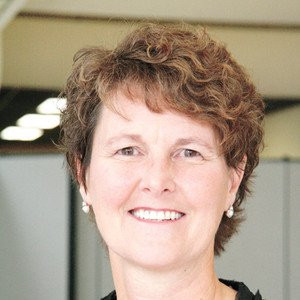Guest MINDSETTER Joel Hellmann: What PARCC Doesn’t Measure
Wednesday, July 15, 2015
Ken Wagner has been appointed the new commissioner of education. He believes in PARCC testing or similar graduation requirements. This is bad for children. Here are some of my experiences to demonstrate the point.
I have fostered 22 children from DCYF adopted 4 children from DCYF as teenagers. The youngest, under multiple standardized testing came to us as mentally retarded (IQ64.) When he first got here he scored in the second percentile in standardized testing nationally. He had been in 3 urban schools for the first 4 years of education. After 1 year, being in a stable home and going and going in early to school to work with a very dedicated special ed. teacher at a good school, the next year he took the standardized test again. This time he was in the 60th percentile. In 1 year.
Did the standardized test truly reflect the child? Did he go up 58% in one year? Did his IQ really go from 64-105 in one year? Does he belong in the second percentile or the 60th? Or did the test really reflect the abject poverty he was living in before he came to us? That he was in poorly performing districts and perhaps not teachers who had the excess capacity (overworked) or skill to move him forward? Or did the test reflect the fact that he didn't know where his next meal was coming from? Or did it reflect his ongoing concern if his mom's boyfriend was going to beat him up again? Or make him drink alcohol? Or that DCYF had put him in a group home that had a 10 day limit, and left him there for 4 months?
GET THE LATEST BREAKING NEWS HERE -- SIGN UP FOR GOLOCAL FREE DAILY EBLASTYou need a high school diploma. A diploma determines if you will have a future, indeed it is an admission ticket to life. The test seems too important to be based on something with so many variables based on the luck of the draw.
How many hundreds of children in DCYF of kids never get out of a bad place and face such concerns daily. How many thousands of kids in RI in similar bad situations never even get on DCYF’s radar and schools just label them as “lazy” or mentally retarded. If RI uses these standardized testing to establish graduation requirements, and yes that is their intention, how many children will fail high school that were misdiagnosed or never given a fair chance?
Personal Experience
In 2003 I was running Barrington Community Theatre, I had a student who was a techie and wanted a position as an intern for the summer. He had been in an urban Mass school system all his life. And he is one of the many people who are good in one area and not another. Basic math skills eluded him then, but put him in front of lighting or sound board or any kind of computer and it was like looking at a Mozart. But he was in danger of not graduating high school in a couple of subjects. I told him that if he didn’t graduate that I would not hire him as the intern (we only took one and I could not justify picking a kid with no diploma while passing on kids who did).
I have done the hiring for many companies and businesses, and when going through applications ALWAYS the first cut is to eliminate anyone who did not graduate high school or had a GED. You have to cut somewhere and that is a legal way to whittle down the pile. Many businesses do this. Not having a high school diploma is to be a second class citizen for the rest of your life. So this student, urged on by my insistence that he graduate to get the job, and with the help of a couple of very considerate teachers, he graduated by the skin of his teeth.
I tell you with confidence that there was no way that he would pass all the components of the PARCC test, his foundation in subjects was too weak, and his interests were too narrow for a broad test like that. He was our intern and worked for us for many years. He struggled the first year in college, finding himself. Not everyone has it figured out at age 17 some don’t get that epiphany until 20 or 21. But having the diploma he got into college. Within a year he had it figured out. Today, not only did he succeed at college and get a bachelor’s degree, he has completed his doctorate, he is teaching computer science at a University in Mass. Had the requirement of passing the PARCC test been in place, he never would have graduated high school, never got into college and probably would be working in a Starbucks, Walmart, or McDonalds, waiting for minimum wage to go up.
Do No Harm
Educators could benefit from the instruction doctors receive: First do no harm. Implementing PARCC or any other standardized test as a graduation requirement will harm many children. Period. People who say different do not know what they are talking about; I would be pleased to debate anyone who feels there is another position on this issue.
Ken Wagner has been quoted in news articles that “A diploma should mean something” The same thing that has been said by RIDE officials and my son’s school committee. It is an obtuse statement. It is an ass-backwards position. NOT HAVING a diploma means something. It means the child has at best a dim future of employment prospects. It means manual labor, dead end jobs. Or worse still welfare benefits paid by the rest of us or even worse still Prison which we all pay for.
I won’t get into how faulty the PARCC tests are, or that Pearson, the foreign company that makes billions on these tests and materials to support them. That they spend hundreds of millions lobbying (buying) our politicians to insure that testing, their testing, stays in place. Nor will I discuss how the test will never be used to eliminate any poor teachers, who will continue teaching with supports, while the students who were taught by them pay the price and fail and are subjected to lives of poverty and prison. I leave those arguments to others.
I would love to talk to Ken Wagner about this issue. I think it would be good for him to hear the other side of these children’s stories. And last I want to thank Speaker Mattiello, who last year through bold action delayed the disaster for three years (though Barrington is still implanting it to the detriment of its children). I would love to speak to him and thank him for his actions, and urge him to make sure that that delay becomes permanent. Not everyone enters this world with the same cards in his hands. And a society is judged on how well it takes care of its least powerful members.
Joel Hellmann Is a business management consultant, who is also a foster, and an adoptive parent as well as the biological parent of a child with Asperger’s. He founded Barrington community theatre in 2002, and is currently a director for Bristol County Water Authority, and a past member of the Barrington appropriations committee.
Related Slideshow: RI Experts on the Biggest Issues Facing Public Education
On Friday November 22, the Hassenfeld Institute for Public Leadership at Bryant University, the Latino Policy Institute of Roger Williams University, the Rhode Island Association of School Committees, the Providence Student Union, and RI-CAN: Rhode Island Campaign for Achievement Now will host Rhode Island leaders in the public and nonprofit sectors for a symposium on "the civil rights issue of the 21st century, adequacy and equity and the State of Education in Rhode Island."
Weighing in on the the "three biggest factors" facing education in the state today are symposium participatnts Gary Sasse, Founding Director of the Hassenfeld Institute for Leadership; Christine Lopes Metcalfe, Executive Director of RI-CAN; Anna Cano-Morales, Chairwoman of the Board of Trustees, Central Falls Public Schools and Director, Latino Policy Institute at Roger Williams University; Tim Duffy, Executive Director, RI Association of School Committees; and Deborah Cylke, Superintendent of Pawtucket Public Schools.
Related Articles
- It’s All About Education: Failure to Launch - It’s Not Just a Movie
- It’s All About Education: Learning Life Skills at Hope High
- It’s All About Education: School Choice - Vouchers and Tax-Credit Scholarships Don’t Pay
- It’s All About Education: Making a Commitment to Rhode Island’s Children
- NEW: Two RI Schools Given Green Ribbon Awards by U.S. Dept. of Education
- It’s All About Education: After School Programs Make a Difference
- It’s All About Education: Choosing the Right School for Your Child
- It’s All About Education: Changing Lives with School Lunches
- NEW: School Choice Legislation to be Introduced for Education Savings Accounts for RI Families
- It’s All About Education: How Breakfast Could Help Close the Achievement Gap
- GoLocalTV: Raimondo Picks NY’s Wagner for New RI Education Commissioner
- NEW: Raimondo Names McConaghy, Foulkes Education Council Chairs
- Moore: Can New Ed Commissioner Wagner Handle RI?













